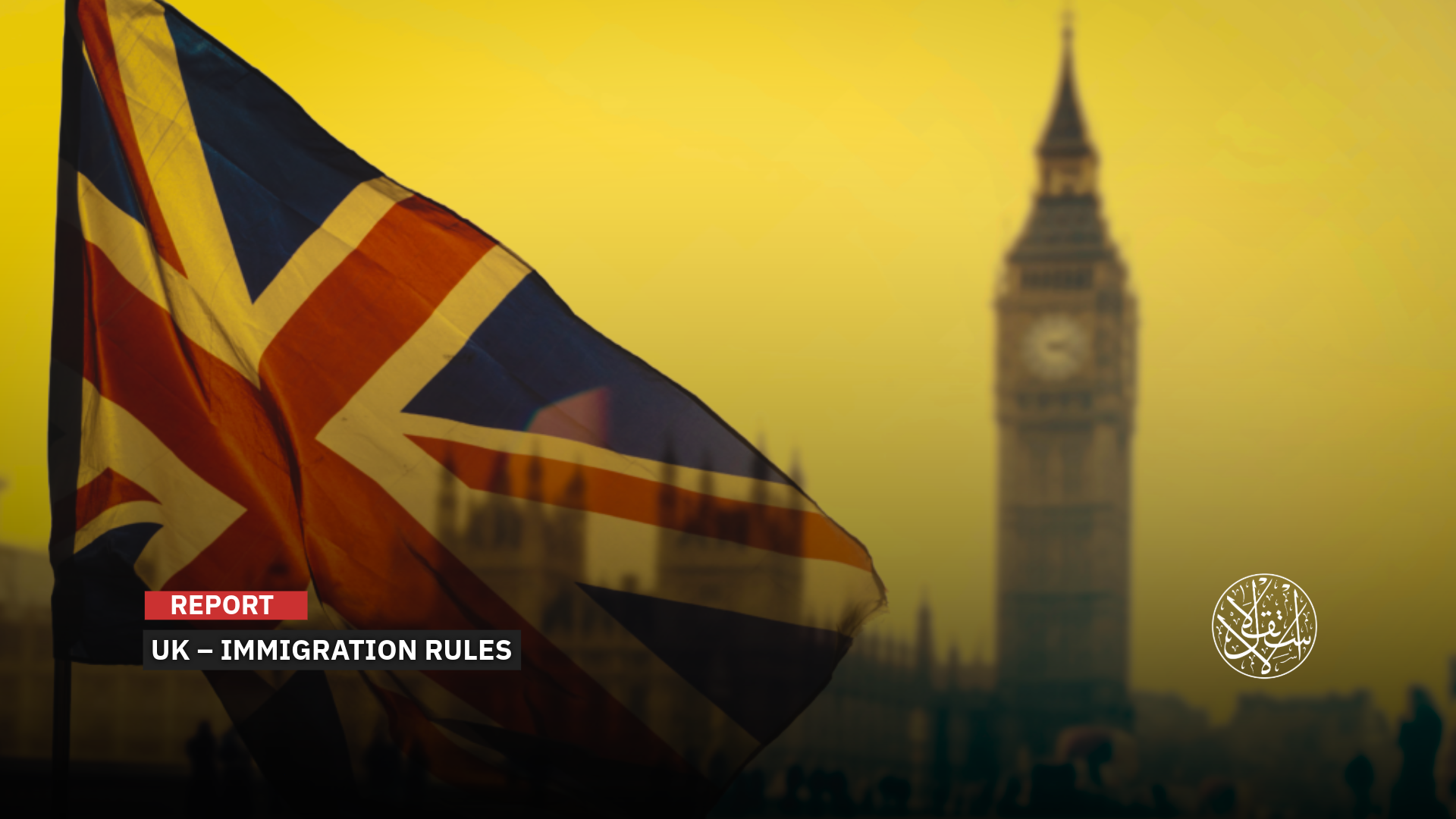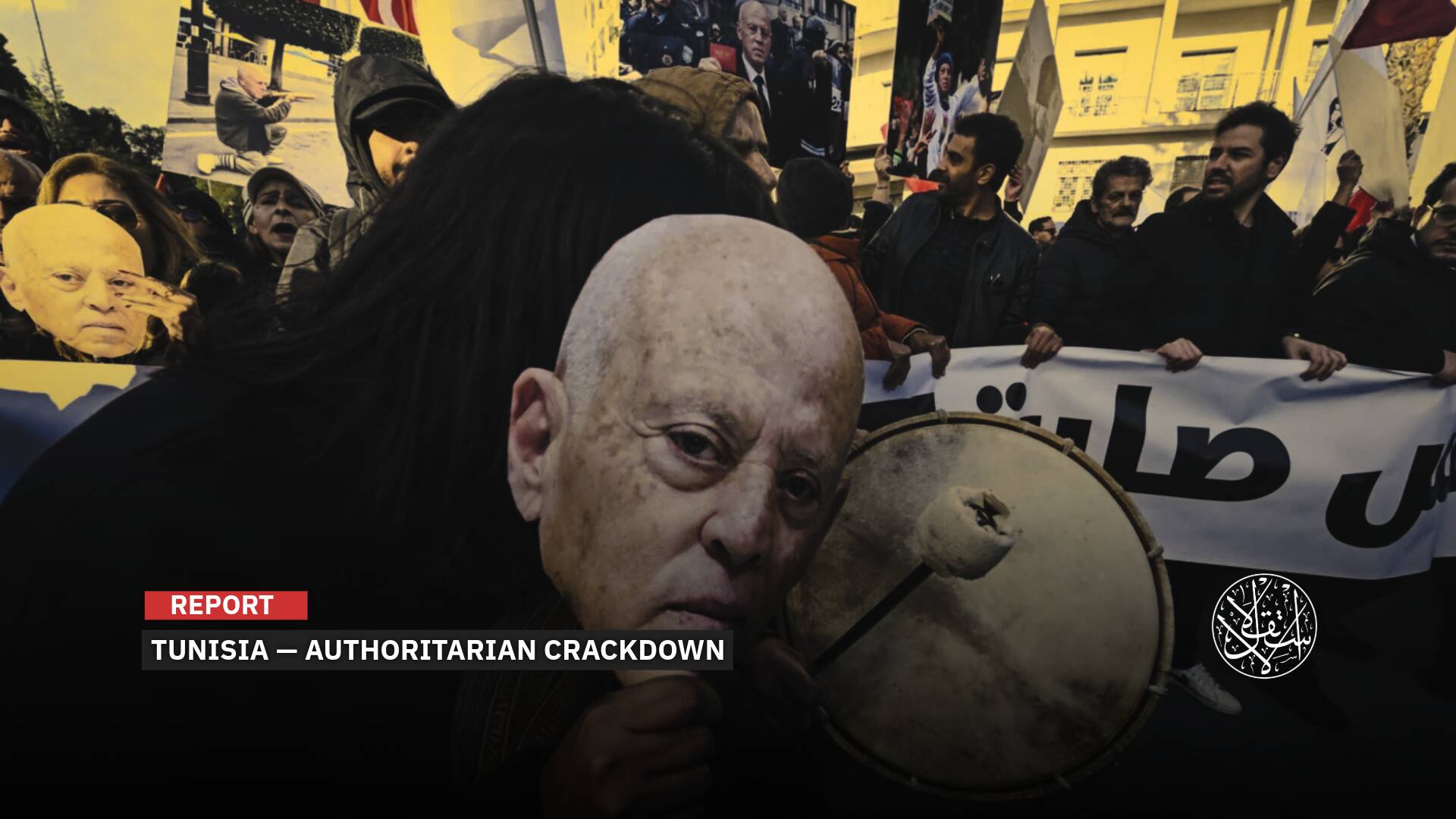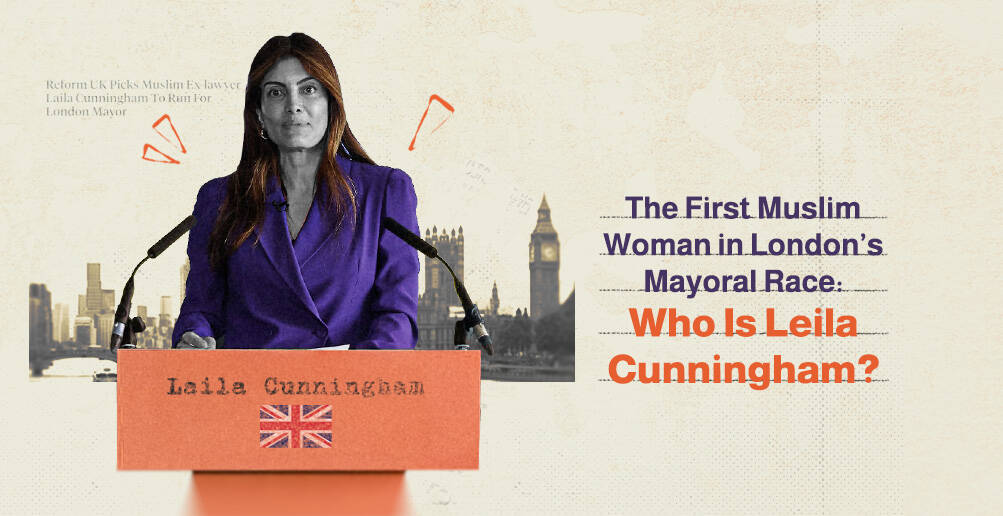How Britain’s Plan to Tighten Permanent Residency Criteria Sparked Widespread Controversy

“Refugees will lose the automatic right to bring their families to Britain.”
With the rise in immigration numbers, Britain is moving toward implementing stricter policies, including extending the length of stay required to obtain citizenship and imposing linguistic, economic, and social requirements. This has sparked political controversy and economic concerns about labor shortages.
The British government recently confirmed that refugees and migrants will lose the automatic right to bring their families, noting that family reunification applications had been suspended since last September.
These new steps are part of the ruling Labour Party's efforts to tighten migration policies and reduce the risks associated with irregular crossings, while maintaining its commitment to receiving refugees fleeing persecution.
Home Office estimates suggest the measures could reduce the number of people coming to the UK by up to 100,000 per year.
Net migration to the UK - total permanent arrivals minus total permanent departures - fell to 431,000 in 2024, down almost 50% on the total in 2023, when it reached a record high of 906,000.
Strict Conditions
Britain recently announced fundamental changes to its asylum policy, including ending automatic permanent residency and family reunification for migrants granted asylum, as part of steps aimed at reducing irregular migration.
Under growing pressure from the far-right, Keir Starmer's government unveiled changes to the UK's refugee policy, including ending automatic family reunification for refugees residing in the country.
It also decided to increase the eligibility period for permanent residency from five to ten years.
These reforms are part of what Starmer described as a fairer system, where refugees and immigrants seeking to settle in the UK must actually contribute to society before receiving long-term residency rights.
Contribution to public life is one of a set of new immigration rules the government presented to Parliament this week to control the migration crisis.
The new plan builds on stricter rules set by Home Secretary Shabana Mahmood, which include a commitment to paying social security contributions, a clean criminal record, not relying on benefits, a high level of English language proficiency, and community contributions through volunteering in associations and organizations.
The minister said this step aims to address the pull factors that lead to irregular migration and impose a longer pathway to permanent residency, instead of the current five-year system.
She added that genuine refugees will receive basic protection and will not be returned to their countries of origin.
She explained that these changes follow the implementation of an agreement to return migrants arriving by small boat to France, as part of the transformation plan aimed at dismantling human trafficking networks and ensuring the security of the UK's borders.
Mahmood warned party members that ignoring the immigration issue will lead to a loss of confidence in Labour, and some will turn to the false promises made by Reform UK party leader Nigel Farage.
These decisions come at a time when the Labour Party is facing significant challenges due to the rising popularity of the far-right, anti-immigration Reform UK party, as the government seeks to curb the raging national debate over legal and irregular migration.
Farage recently pledged to revoke permanent residency for non-EU citizens, including those already granted it, and would require migrants to apply for a visa every five years. This would apply to hundreds of thousands of people currently entitled to remain in the UK.
Starmer described Farage's proposals as racist and immoral, adding that they would tear the country apart.
These measures draw a clear dividing line between a Labour government and the Reform Party, whose latest announcement would force migrants who have helped build this country for decades to leave their homes and families behind.
In response, Farage accused Starmer of promoting a policy aimed at politicizing immigration and inciting divisions, while Deputy Prime Minister David Lammy attempted to calm the controversy.
The Migration Observatory estimates there are about 4.5 million people who hold indefinite leave to remain, including roughly 430,000 non-EU citizens.
Migration has long been a key issue for voters in Britain. Controlling the number of immigrants was a key factor in the 2016 vote to leave the European Union. However, net migration reached record levels after Britain left the bloc.

Migration Crisis
In an interview with the BBC, British Prime Minister Keir Starmer previously announced several measures, including the launch of a mandatory digital identity card, accessible on mobile phones via a government app, to crack down on irregular workers and reduce irregular migration.
He added that the British government will aggressively implement a one-for-one plan with France to return migrants who crossed the English Channel irregularly, in exchange for accepting those with genuine asylum claims.
He also announced radical measures in the White Paper that seek to enable the UK to serve the national interest and regain control of its borders by reducing net migration, raising skills levels, and supporting British workers.
Starmer also emphasized the importance of European cooperation in combating irregular migration, highlighting new partnerships with Denmark worth up to £3 million to address the causes of migration at their source and support the voluntary return of migrants.
The government also announced a contribution of up to £5.75 million to Italy's ‘Operation Rome’ to address migration in Africa.
He emphasized that “if you want to come to the UK, you have to contribute to our society. There will be no golden card; people have to earn it.”
He added that this policy does not conflict with the UK's obligations towards refugees fleeing persecution, but rather seeks to address the rise in illegal crossings across the English Channel.
He explained that the country is facing unprecedented mass migration, emphasizing that Brexit has contributed to the increase in the number of people crossing by small boats.
He pointed out that Articles 3 and 8 of the European Convention on Human Rights, which protect the right to private and family life and prohibit torture, are interpreted very broadly by judges when considering deportation.
On coming to power in July 2024, Labour promised to stop the chaos of the small boat crisis but numbers remained at high levels.
More than 33,000 people have arrived in the UK via the English Channel using makeshift boats since the beginning of the year, a record number compared to the same period last year.
Home Office figures indicate that nearly 21,000 family reunion visas were issued to refugees in the year to June 2025, the vast majority of which were for women and children.
Currently, anyone with family members in the UK who has lived in the UK for five years is eligible for permanent residency, as are anyone who has spent ten years legally on any type of visa.
They also have the right to live, work, study, and receive benefits, as well as the ability to apply for British citizenship.

Show-Off Policies
In contrast, several immigrant advocacy groups have denounced the new proposals put forward by the Labour Party, describing them as discriminatory and risky because they exclude vulnerable groups, particularly those on low incomes or facing integration difficulties.
For their part, opposition parties have warned that this reform could exacerbate divisions within British society.
The Refugee Council, a charity, said the government's approach would not deter people trying to get to the UK but would instead push more desperate people into the arms of smugglers in an effort to reunite with loved ones.
It warned that these policies could exacerbate the hardship of refugees, who are often barred from working at the outset of their stay and forced to rely on government benefits.
Experts such as Madeleine Sumption, director of the Migration Observatory at Oxford University, described these criteria as a departure from the simple procedural nature of the past.
They warned that social contributions such as volunteering are difficult to measure compared to easily verifiable financial or criminal data.
More than 100 charities and humanitarian organizations signed an open letter to Home Secretary Shabana Mahmood, calling for an end to the scapegoating of immigrants.
The letter, coordinated by Refugee Action and involving major organizations such as Oxfam, Save the Children, Greenpeace, and Friends of the Earth, argued that targeting migrants will not solve Britain's structural problems.
“These showy policies will not achieve growth or renaissance. Rather, they obscure the real issues and provide political cover at the expense of the most vulnerable,” the letter read.

In a related development, a new public petition has collected tens of thousands of signatures demanding that the government reverse its plans to double the eligibility period for Indefinite Leave to Remain (ILR) from five to ten years.
The petition warned that the government's proposal would violate the Five-Year Promise, which many immigrants relied on when arriving in Britain, particularly those working in vital sectors such as health and social care.
Immigration lawyers, trade unions, and civil society organizations view this measure as a worrying step that could harm Britain's attractiveness to skilled workers and exacerbate labor shortages in vital sectors.
The petition's signatories warned that the retroactive application of the decision would severely impact families and workers who had planned their futures based on current laws.
They emphasized that extending the period would mean additional fees, repeated visa renewals, and years of uncertainty and instability.
It should be noted that the number of signatures has exceeded the required threshold (100,000), and therefore the British Parliament will be required to formally debate the petition.
The Starmer government is also required to issue an official response to the petition this week.











